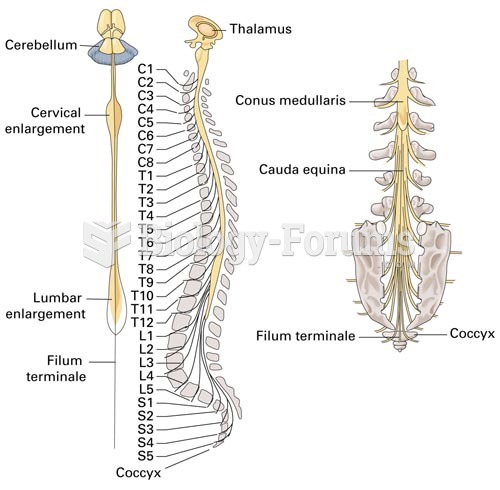|
|
|
Hyperthyroidism leads to an increased rate of metabolism and affects about 1% of women but only 0.1% of men. For most people, this increased metabolic rate causes the thyroid gland to become enlarged (known as a goiter).
Bacteria have been found alive in a lake buried one half mile under ice in Antarctica.
People with high total cholesterol have about two times the risk for heart disease as people with ideal levels.
GI conditions that will keep you out of the U.S. armed services include ulcers, varices, fistulas, esophagitis, gastritis, congenital abnormalities, inflammatory bowel disease, enteritis, colitis, proctitis, duodenal diverticula, malabsorption syndromes, hepatitis, cirrhosis, cysts, abscesses, pancreatitis, polyps, certain hemorrhoids, splenomegaly, hernias, recent abdominal surgery, GI bypass or stomach stapling, and artificial GI openings.
Barbituric acid, the base material of barbiturates, was first synthesized in 1863 by Adolph von Bayer. His company later went on to synthesize aspirin for the first time, and Bayer aspirin is still a popular brand today.
 Fish come in many shapes and sizes. This is a sea dragon, a close relative of the seahorse. Their le
Fish come in many shapes and sizes. This is a sea dragon, a close relative of the seahorse. Their le
 The Spinal Cord, The Spinal Cord and Spinal Nerves; Close-up of the Caudal Region of the Spinal Nerv
The Spinal Cord, The Spinal Cord and Spinal Nerves; Close-up of the Caudal Region of the Spinal Nerv





